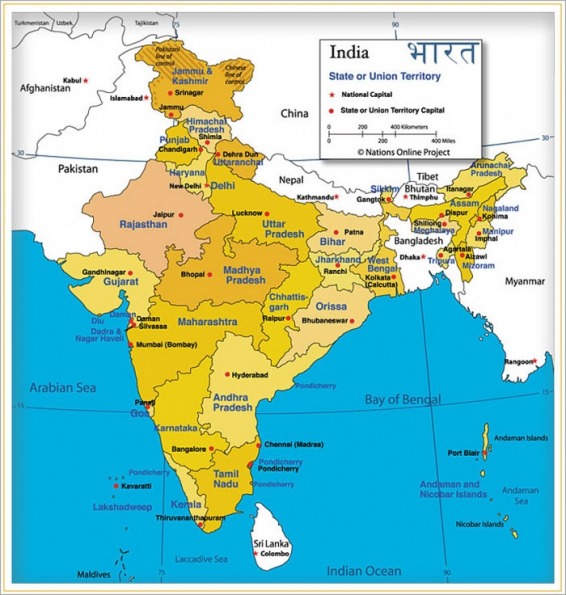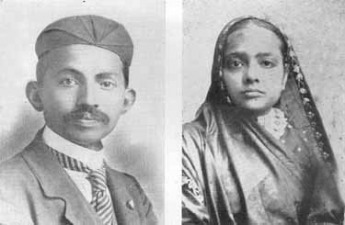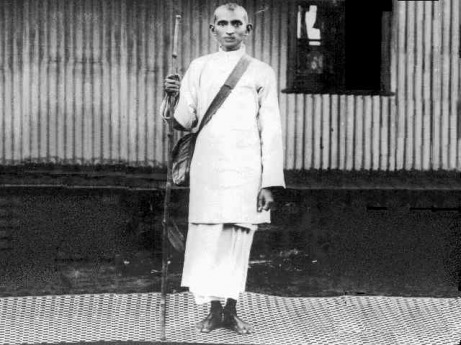Gandhi The Child
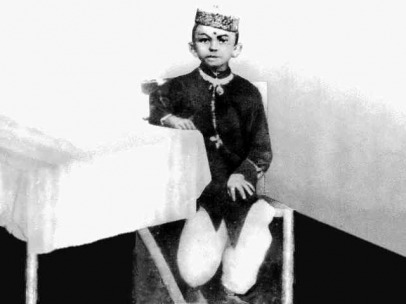
Gandhi was born in Porbander, a costal town in present day Gujarat, India, on October 2, 1869. His father was named Karamchand Gandhi and his mother's name was Putlibai. She was Karamachand's fourth wife; the first three wives died in childbirth. In May 1883, the 13-year old Mohandas was married to 14-year old Kasturbai Makhanji in an arranged child marriage [thier photo is posted beneath the map of India]. Gandhi and his wife had four son's together.
The Young Man
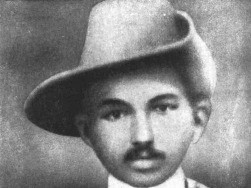
On 4 September 1888, less than a month shy of his nineteenth birthday, Gandhi traveled to london, England, to study law at University College London and to train as a barrister. He promised his mother that while he was in London, that he would continue to honor Hindu belief and abstain from meat, alcohol and promiscuity. He respected her wishes, but instead of following her advice blindly, he researched Vegetarianism and joined the vegetarian soctiey.
In 1906, after the British introduced a new poll-tax, Zulus in South Africa killed two British officers. Ghandi urged the British to recruit Indians. He argued that Indian's would aid the war effort to legitimize their citizenship. The British refused to comission Indians as army officers but allowed them to treat injured British officers in a corp commaded by Gandhi himself.
The Adult
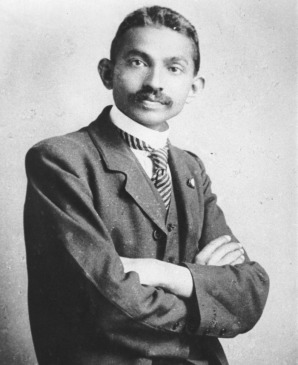
In 1915, Gandhi returned from South Africa to live in India. Gandhi's first major achievements came in 1918 with the Champran agitation and Kheda Satyagraha. Suppressed by the militias of [mostly Brisitsh] landlords, citizen's of Champran were forced to grow indigo and other cash crops and recieved insufficient compentation. The people were unable to sustain themselves, the villages were extremely dirty and unhygenic and alchololism was rampant. Gandhi orgainzed an ashram, a community of people who live toegther with nature, surveyed the villages, collected evidence and began building schools and hospitals. He was arrested by the police, but hundreds of thousands of people rallied outside the jail and he was reluctantly released.
The Wise Man
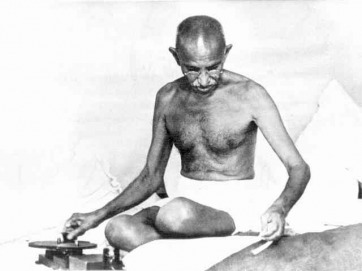
Gandhi stayed out of the limelight for most of the 20's. The Salt Satyagraha was a campaign of non-violent protest against the British salt tax in colonial India which began with the Salt March to Dandi on March 12, 1930. Gandhi led the Dandi march from his Sabaramati Ashram to Dandi, Gujarat to produce salt without paying the tax, with growing numbers of Indians joining him along the way.
Gandhi opposed the plan to partion India into two separate countries. Despite fears of a civil war breaking out, he conducted extensive dialogue with Muslim and Hindu community leaders and fasted to keep the peace. Hindu, Muslim and Sikh community leaders agreed to renounce violence and Gandhi stopped fasting.
On 30 January 1948, Gandhi was shot and killed while having his nightly public walk on the grounds of the Birla Bhavan in New Delhi. The assassin was a hindu extremist who blamed Gandhi for weaking India.
